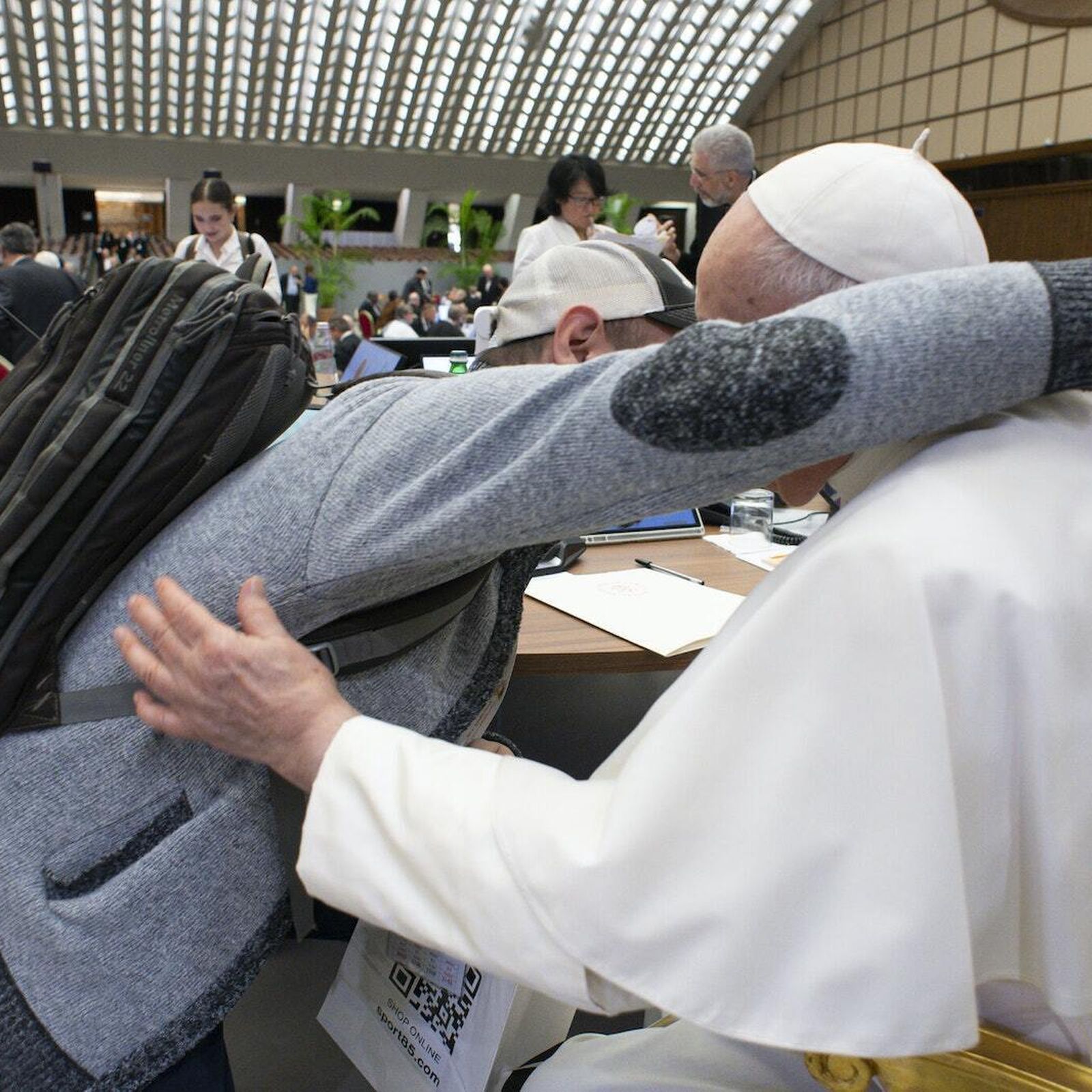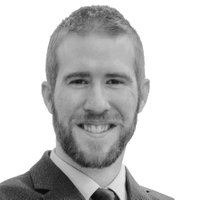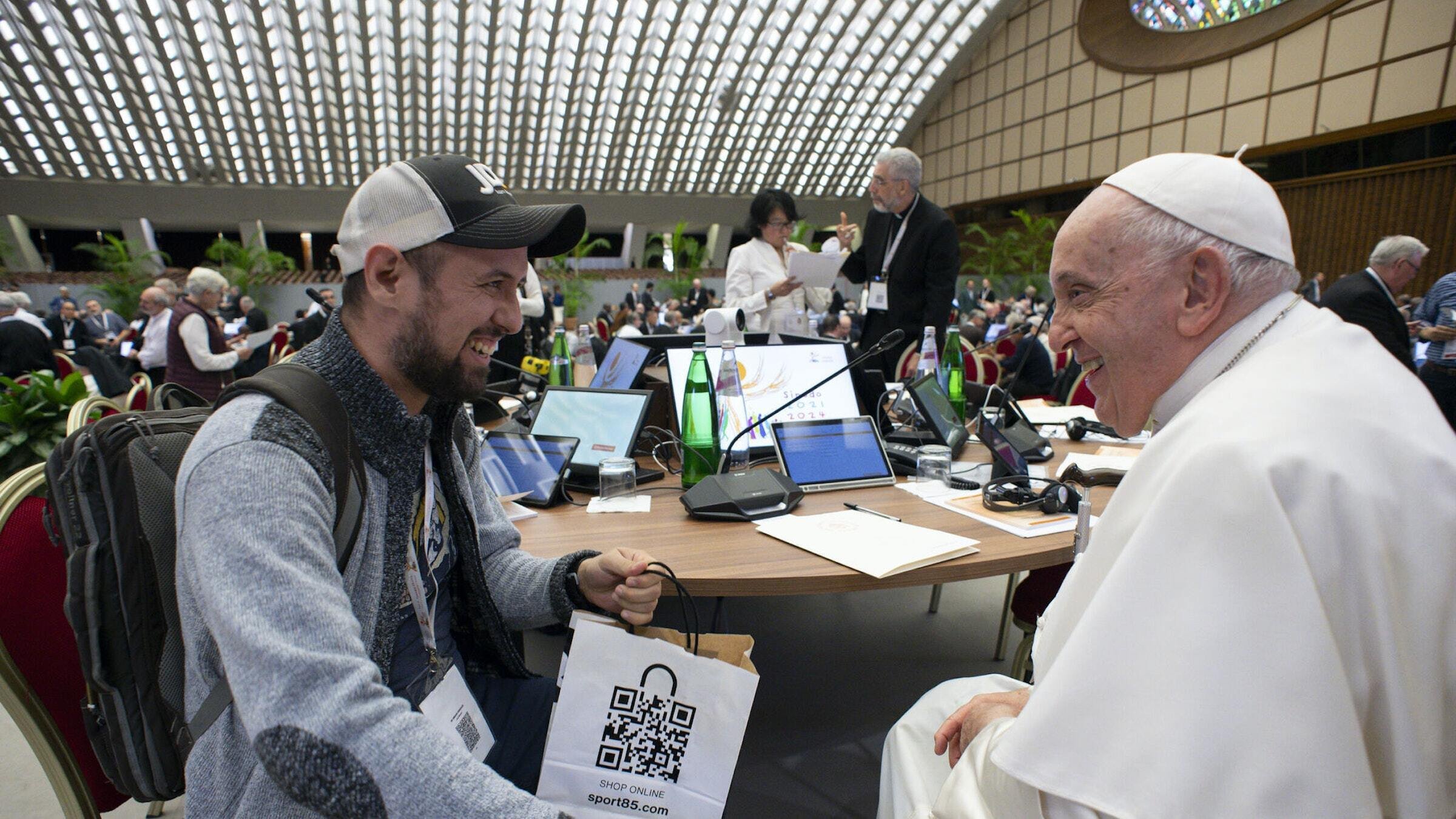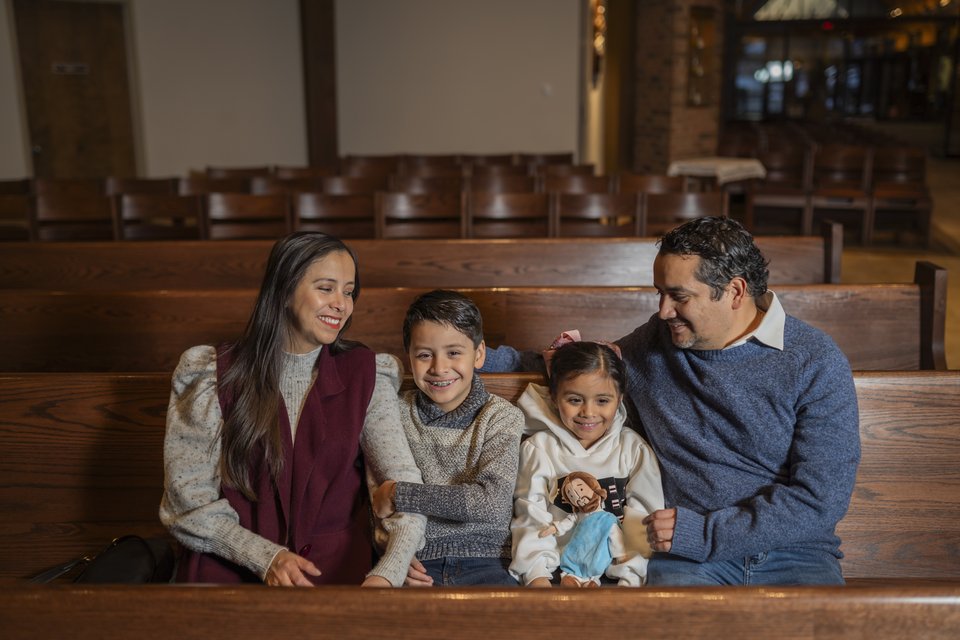José Manuel de Urquidi reflects on a month in Rome for synod on synodality: 'I felt like the pope was a grandfather to my children'
DETROIT — “The pope has been looking for you,” José Manuel de Urquidi was told.
The editor of Detroit Catholic’s sister publication, Detroit Catholic en Español, had just finished a meeting with bishops and delegates from Latin and Central America to the Synod of Bishops in Rome when he was approached with a message.
So Urquidi, 39, made haste to the Vatican's Paul VI Audience Hall, where the pope’s secretary greeted him and led him to a table across the room, where Pope Francis waited with a surprise gift.
Urquidi, a husband and father of three young children, had been away from his family for weeks, serving as one of 70 lay voting members of the Oct. 4-29 synod, and the Holy Father was well aware.
“He told me, ‘I have something for your kids,’” Urquidi said. “It was a bag with two boxes of Argentinian candies. He said, ‘Please give this to your children. I know they have been without their father for a month, and we are very happy that you’re here.’”
The baseball cap-wearing, podcasting native of Monterey, Mexico, and founder of Juan Diego Network said the encounter with Pope Francis was “just a glimpse” of the spiritual closeness he experienced during the first general session of the synod on synodality, where delegates from around the world gathered in prayer to listen and discern the voice of the Holy Spirit.
“At the end, I felt like the pope was a grandfather to my children,” Urquidi said. “I felt really close to the Church through him. I asked if I could give him a hug, and he said yes. As a father to small kids, it’s a difficult thing to be away for a month.”
It was the first time in the history of the Synod of Bishops that lay Catholics have been invited as voting members — a significant change and a sacrifice for delegates who also are husbands, fathers, wives and mothers.
While Urquidi was in Rome, life happened at home. His oldest daughter celebrated her ninth birthday, and his grandfather passed away. Urquidi had several chances to talk with Pope Francis throughout the synod process, and each time, the pope was warm, genuine and caring. For his daughter’s birthday, Urquidi said the Holy Father even recorded a short cellphone video to send home.

"Every time I talked with him, he'd ask me about my family," Urquidi said. "I really felt like he cared about me."
The current phase of the synod, which wrapped up Oct. 29 with a synthesis report and a “Letter to the People of God,” will serve as a precursor to the work of the synod’s final gathering in October 2024. Like the other delegates — who voted on each paragraph of the 41-page synthesis report — Urquidi will spend the next 11 months praying, discerning and listening as he prepares to return for the second session.
The synod serves as an advisory body to Pope Francis, who is expected to issue an apostolic document at the synod's conclusion.
With media reports speculating about the topics that would be discussed, Urquidi said the synod’s themes of communion, mission and participation in the life of the Church touched on a wide range of ideas, but left a lot of room for listening — a crucial element of discernment, he said.
“It sounds cliché, but the synod really was about listening,” Urquidi said. “I understand how that sounds. Like, really? You just listened? Why do that for a month? But we prayed a lot during each day — maybe close to two hours per day — because we really were trying to listen to the Holy Spirit.”
The delegates spent much of their time in small groups, where participants had chances to broaden their perspectives by talking with those from other parts of the Church, Urquidi said. Ultimately, the synod wasn't about one topic, or even a handful of topics, but about building a Church where the Holy Spirit can encounter all people.
“We were hearing from people in places where the Church is booming,” Urquidi said. “For example, in the west, we have a lot of elderly and retired priests, but in Africa, they have the opposite problem. They don’t have enough older priests to mentor and teach the younger priests, and they have a lot of vocations. They’re living in a reality that’s very different from ours.”

While synod members discussed a few “hot button” topics, such as the role of women in the Church and how to accompany Catholics who experience same-sex attraction, the final synod document was not nearly as controversial as many had feared, Urquidi said. Instead, the synthesis report represented a careful accounting of frank, open dialogue.
“These issues might have been discussed in some groups, but the synod was not about those issues,” Urquidi said. “It was the synod on synodality, and I’m starting to understand better what that means.”
While defining “synodality” has proven to be a tricky endeavor, Urquidi said it’s not about turning the Church into a democracy or creating a path toward changing doctrine. Rather, it’s about finding unity in a often-divided Church through authentic, Spirit-led conversations and encounters.
While the synthesis report touches on a wide range of topics, “nothing in the proposals touches doctrine or dogma, or even discipline,” Urquidi said. “It’s not like this is going to be a wild west. It’s a very simple document. It’s ecclesiological and pastoral, not theological.”
“This was a very open place to talk about a lot of the most important things we’re facing,” he said. “It was about learning how to ‘synod.’ So that meant a lot of praying and a lot of listening to see where God wants us to move as a Church.”
For instance, with his background in media, one of the discussions in which Urquidi took part was about the Church’s digital mission, which a “very concrete thing” in the 21st century, he said.

"That's where people are spending most of their waking hours right now," Urquidi said. "That's where people are looking for meaning, looking for love. That's where people are looking for truth, and if we're not there, who's going to give them that?
"The Church must react to that reality," he added. "What’s the right way to do it? We don’t know. There’s a lot of potential ways to do that.”
Over the next year, Urquidi said he will be praying with the synthesis report as he prepares to return to Rome for the second and final session, and he encourages Catholics all over the world to take up the same initiative.
"You can still be part of the synod," he said. "This is for everyone."
Urquidi, who was among those chosen to present the gifts during the synod’s closing Mass on Oct. 29, said he doesn’t know what next year’s session will hold. But he’s looking forward to discerning with the mind of the Church over the next 11 months.
“Seeing the reality of the Church from every country, every continent was for me the best way of discovering the richness and universality of what it really means to be Catholic,” Urquidi said. “Everyone is struggling with different things, and we can learn a lot from them. It’s not about theological or intellectual or liturgical battles. It’s about making the beatitudes a reality.”
Copy Permalink
Evangelization












